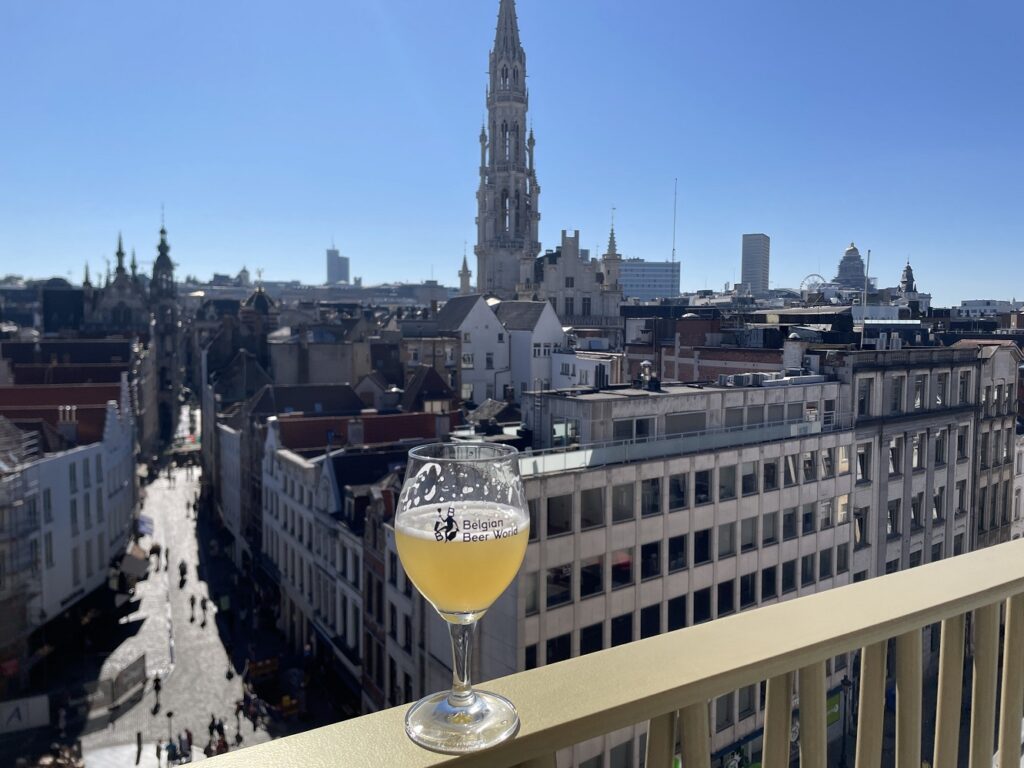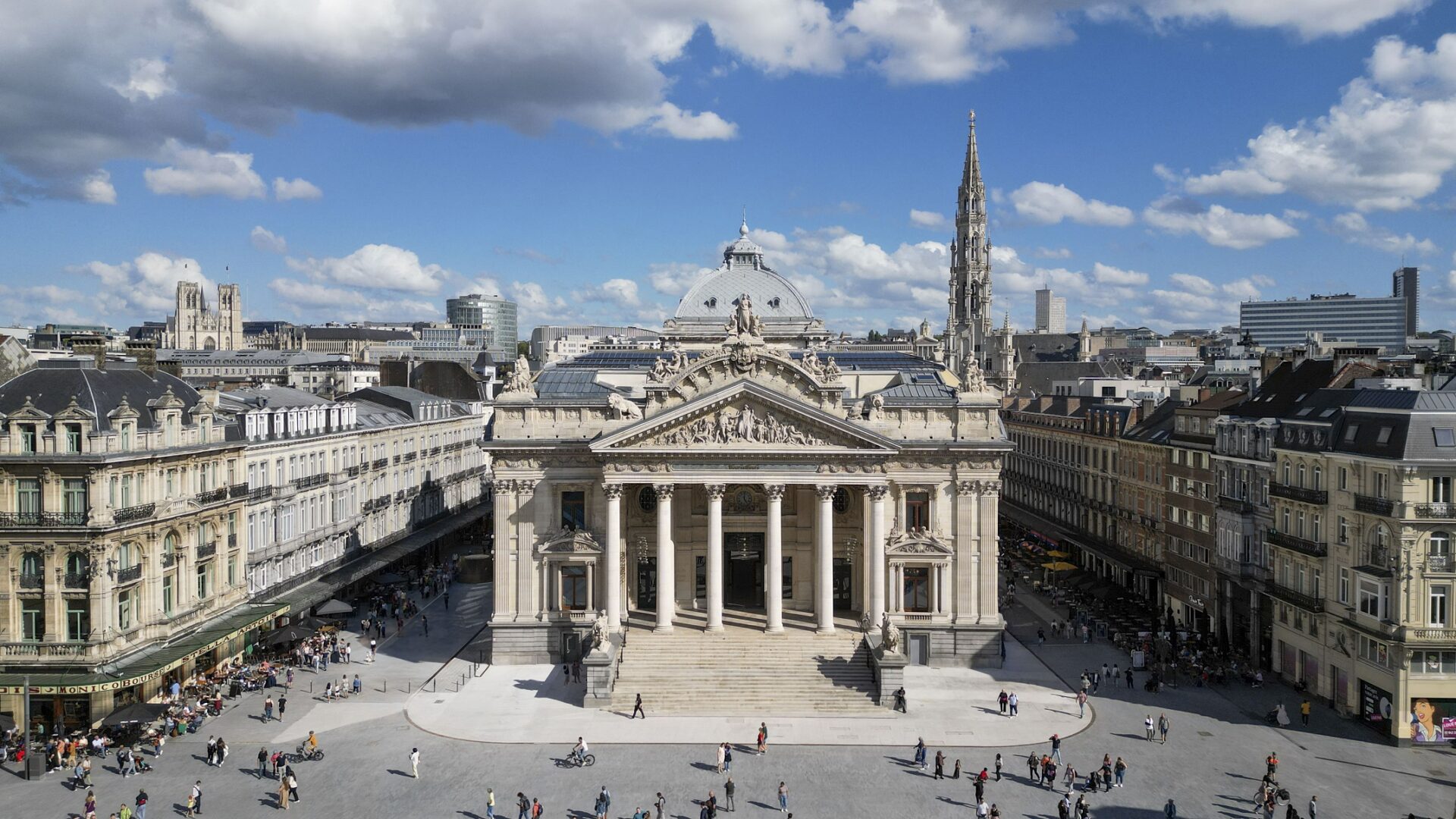Belgium is known around the world as the beer country par excellence. Google books about beer and you will find piles of literature on beer types from red to brown to blonde, on how to brew beer, on breweries and abbeys, on how to combine appetisers, fish, meat, tapas or desserts with beer. All of these will feature Belgium!
I have written several books about beer myself. The first, published in 2002, was entitled Gruuten Dëst, which translates as The Big Thirst. I wrote it with my late father Marc, who had introduced me to beer when I was a youngster, and my uncle Karel. We visited 101 pubs in the 19 Brussels communes as part of our research.
Beer specialists from far and wide come to Belgium to taste our brews, including Michael Jackson. That’s not the late singer with the signature dance moves, but his namesake, an English writer who published an entire bookshelf of beer books, including the unsurpassed Great Belgian Beers. By the 1980s, Jackson even had a television series, The Beer Hunter.
Jackson described beers in their context and taught us that beer is an integral part of the culture. A veritable authority, his highlighting of obscure Belgian beers even saved some of them from extinction.
In turn, Belgians recognised Jackson’s huge contribution to raising the international status of our beer, and in 1997 he was appointed an officer in the Knighthood of the Paddle, a Belgian honorary title previously reserved for brewers only.
As for me, that passion for beer that I had as a young lad and later, as a budding politician, still burns fiercely. I was a member of a beer club, organised tastings and, although I was writing about politics, continued to write books about beer, such as Bapas, on beer tapas that I co-edited in 2011.
A symbol of unity
Two decades ago, I was ruminating about how to turn our unique Belgian beer culture into a tourist asset. I dreamt of a place where, despite our political differences as Flemish and French speakers, we could jointly savour our beer.
Beer culture is still solidly Belgian and – like chocolates, cycling and the Red Devils – has avoided being swallowed up in the big political divide. So I went looking for a venue in Brussels, our beautiful, fascinating and somewhat “perfectly imperfect” Belgian and European capital.
My holidays at the time were spent visiting new foreign experience centres that showcase iconic drinks from other countries. In Ireland, for example, I saw the Guinness Storehouse, a tourist attraction near the Guinness brewery, in the centre of Dublin.
Inside the imposing storage tower of the old brewery, you walk through various audio-visual presentations on how black beer brewing works. The Guinness Storehouse is now Ireland's main tourist attraction: some 20 million visitors have passed through its gates since it opened in 2000.
In Amsterdam, I visited Heineken’s HQ. Our northern neighbours also used a brewery to create an experience centre for their lager, under the slogan: “Taste the story of the world's most famous beer.”
And I didn’t just explore beer. In Bordeaux, I saw the Cité du Vin, a modern architectural gem. And in Edinburgh, I enjoyed The Scotch Whisky Experience.
In the meantime, I worked on a beer-related concept for the city with Jean-Luc Vanraes, my predecessor as Brussels Minister of Finance and Budget. We ran a study to pinpoint a location, estimating how many people would visit such a Belgian beer experience centre, who could work with us on such a project, and how to co-finance it. The concept was launched in 2008 at the Belle Vue brewery by the canal.
My own career then brought me closer to beer. In 2011, after 16 years in the Brussels Parliament, I was offered the position of CEO of the Belgian Brewers, a federation housed in one of the most beautiful historical buildings in the Grand Place in Brussels. I took the job.
I felt at home with the brewers. Among other things, I prepared an application to UNESCO to have our beer culture recognised as an intangible cultural heritage.
At the same time, I found an ally who shared my dream of creating a Belgian beer experience centre: Philippe Close, the then alderman for tourism in Brussels, and now mayor of the city of Brussels.

View from the Belgian Beer World terrace
When, in 2012, the city of Brussels bought the stock exchange building – the Bourse/Beurs – Close asked me what I thought about it as a location for an experience museum about Belgian beer.
This was an amazing opportunity. The Bourse is an iconic building in central of Brussels, connecting to the pedestrian zone. I set up a coalition of brewers willing to co-invest in a project at the Bourse: 30 initially agreed to join in.
Political push
Politics soon called me back. After the 2014 general elections, I joined the Flanders regional government as Minister for Brussels Affairs, with additional responsibilities for culture, youth and media.
In my capacity as Culture Minister, I picked up the UNESCO dossier for beer. Two years later, in July 2016, it came to be: Belgian beer’s intangible heritage was very tangibly put in my hands!
Meanwhile, Brussels City was developing the Bourse project. The aims had changed by then: it was not just about renovating the old building but also expanding the pedestrian zone around it, opening up the main atrium, building a roof terrace, creating the actual beer experience centre and integrating a restaurant and café.
Several partners joined the ambitious project: the infrastructure agency Beliris, the European Union’s European Regional Development Fund (ERDF) and Recovery and Resilience Facility (RRF), and the Belgian Brewers (by now, more than 100 breweries had agreed to take part). Last but not least, the Brussels Region, where I have been Minister for Finance and Budget (with responsibilities like tourism, urbanism, heritage and the image of Brussels) since 2019.

Inside the Belgian Beer World
Belgian Beer World is now firmly based in the beautifully renovated Bourse. It is a new jewel in our Brussels crown. The experience highlights the natural ingredients of beer, its role in history and politics, and most of all, the unique Belgian savoir-faire that has spawned a wonderful variety of styles and flavours.
I am exceptionally proud, and I hope all Brussels residents, Belgian and foreign visitors and beer lovers are equally proud. This new tourist asset is proof of our city’s vitality and ambition. As a grand old historical city within a diverse and cosmopolitan metropolis, Brussels has shown it can renew, improve and surprise. That’s something we can all raise a glass of beer to.

